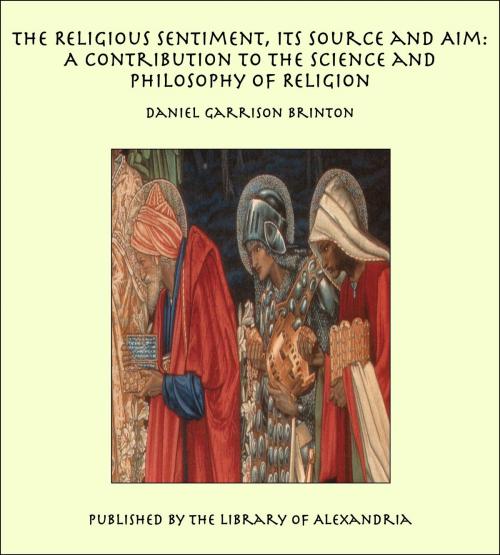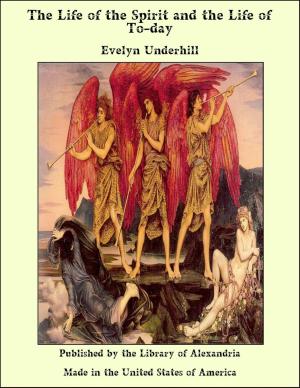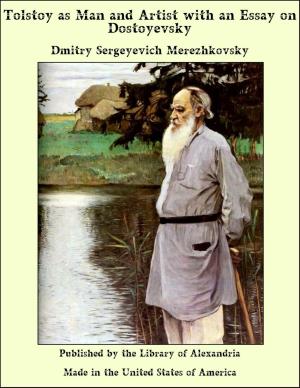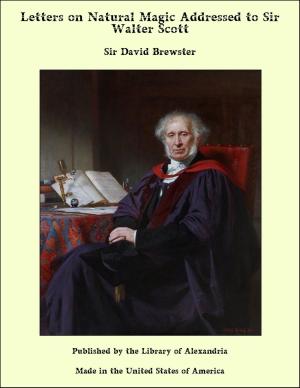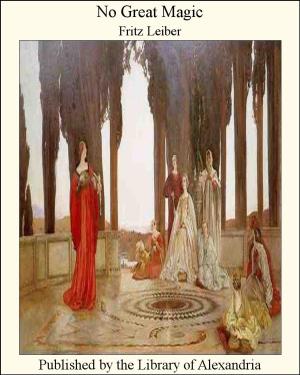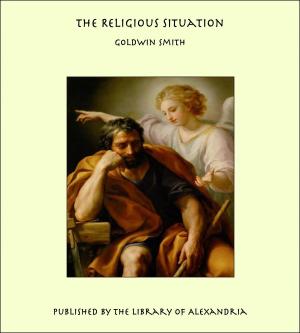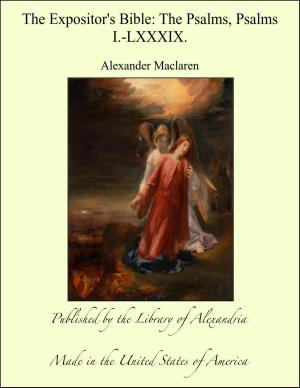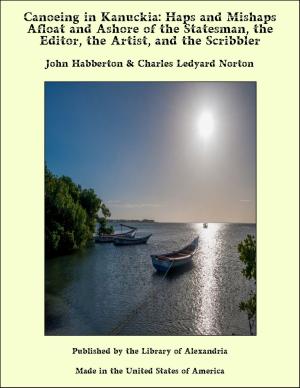The Religious Sentiment, Its Source and Aim: A Contribution to the Science and Philosophy of Religion
Nonfiction, Religion & Spirituality, New Age, History, Fiction & Literature| Author: | Daniel Garrison Brinton | ISBN: | 9781465546852 |
| Publisher: | Library of Alexandria | Publication: | March 8, 2015 |
| Imprint: | Language: | English |
| Author: | Daniel Garrison Brinton |
| ISBN: | 9781465546852 |
| Publisher: | Library of Alexandria |
| Publication: | March 8, 2015 |
| Imprint: | |
| Language: | English |
I express myself, says Bishop Butler, "with caution, lest I should be mistaken to vilify reason, which is, indeed, the only faculty which we have to judge concerning anything, even revelation itself; or be misunderstood to assert that a supposed revelation cannot be proved false from internal characters." "The faculty of reason," he says, "is the candle of the Lord within us against vilifying which we must be very cautious." What would the world be without religion? That is the dread question which seems now to be everywhere presenting itself. Would even the social fabric remain unshaken? Has not its stability partly depended on the general belief that the dispensation, with all its inequalities, was the ordinance of the Creator, and that for inequalities here there would be compensation hereafter? The belief may not in common minds have been very present; but it would seem to have had its influence. Apparently, it is now departing. In some places it seems to have fled. Scepticism, with social unrest, comes in its room. What is now the position of the clergy? Keepers and ministers of truth, as they are understood to be, they alone are debarred by ordination vows and tests from the free quest of truth. They are ecclesiastically bound not only to hold, but to teach and preach, as divinely revealed, what many of them must feel to have been disproved or to have become doubtful. Their uneasiness is shown by writings, such as "Lux Mundi," struggling to reconcile orthodoxy with free thought. It is shown by a growing tendency on the part of pastors to slide from the office of spiritual guide into that of leader of philanthropic effort and social reform. It is seen, perhaps, even in the tendency to give increased prominence to musical attraction in the service. Sermons grow more secular. Clerical biographies, such as that of Jowett, sometimes reveal private misgivings. The writer has even seen the pastorate of a large parish assumed by one who in private society was an evident rationalist and must have satisfied his conscience by promising to himself that he would do a great deal of social good. There is, no doubt, practically, more latitude than there was; heresy trials seem to have ceased, and one of the writers of "Essays and Reviews" became, without serious outcry, Primate of the Church of England. But ordination vows remain; so does the performance of a religious service which includes the repetition of creeds and forms a practical confession of faith. Hollow profession cannot fail to impair mental integrity, or, if generally suspected, to kill confidence in our guides. Read Canon Farrar's "Life of Christ" and you will see to what shifts orthodoxy puts a clerical writer who was, no doubt, a sincere lover of truth
I express myself, says Bishop Butler, "with caution, lest I should be mistaken to vilify reason, which is, indeed, the only faculty which we have to judge concerning anything, even revelation itself; or be misunderstood to assert that a supposed revelation cannot be proved false from internal characters." "The faculty of reason," he says, "is the candle of the Lord within us against vilifying which we must be very cautious." What would the world be without religion? That is the dread question which seems now to be everywhere presenting itself. Would even the social fabric remain unshaken? Has not its stability partly depended on the general belief that the dispensation, with all its inequalities, was the ordinance of the Creator, and that for inequalities here there would be compensation hereafter? The belief may not in common minds have been very present; but it would seem to have had its influence. Apparently, it is now departing. In some places it seems to have fled. Scepticism, with social unrest, comes in its room. What is now the position of the clergy? Keepers and ministers of truth, as they are understood to be, they alone are debarred by ordination vows and tests from the free quest of truth. They are ecclesiastically bound not only to hold, but to teach and preach, as divinely revealed, what many of them must feel to have been disproved or to have become doubtful. Their uneasiness is shown by writings, such as "Lux Mundi," struggling to reconcile orthodoxy with free thought. It is shown by a growing tendency on the part of pastors to slide from the office of spiritual guide into that of leader of philanthropic effort and social reform. It is seen, perhaps, even in the tendency to give increased prominence to musical attraction in the service. Sermons grow more secular. Clerical biographies, such as that of Jowett, sometimes reveal private misgivings. The writer has even seen the pastorate of a large parish assumed by one who in private society was an evident rationalist and must have satisfied his conscience by promising to himself that he would do a great deal of social good. There is, no doubt, practically, more latitude than there was; heresy trials seem to have ceased, and one of the writers of "Essays and Reviews" became, without serious outcry, Primate of the Church of England. But ordination vows remain; so does the performance of a religious service which includes the repetition of creeds and forms a practical confession of faith. Hollow profession cannot fail to impair mental integrity, or, if generally suspected, to kill confidence in our guides. Read Canon Farrar's "Life of Christ" and you will see to what shifts orthodoxy puts a clerical writer who was, no doubt, a sincere lover of truth
